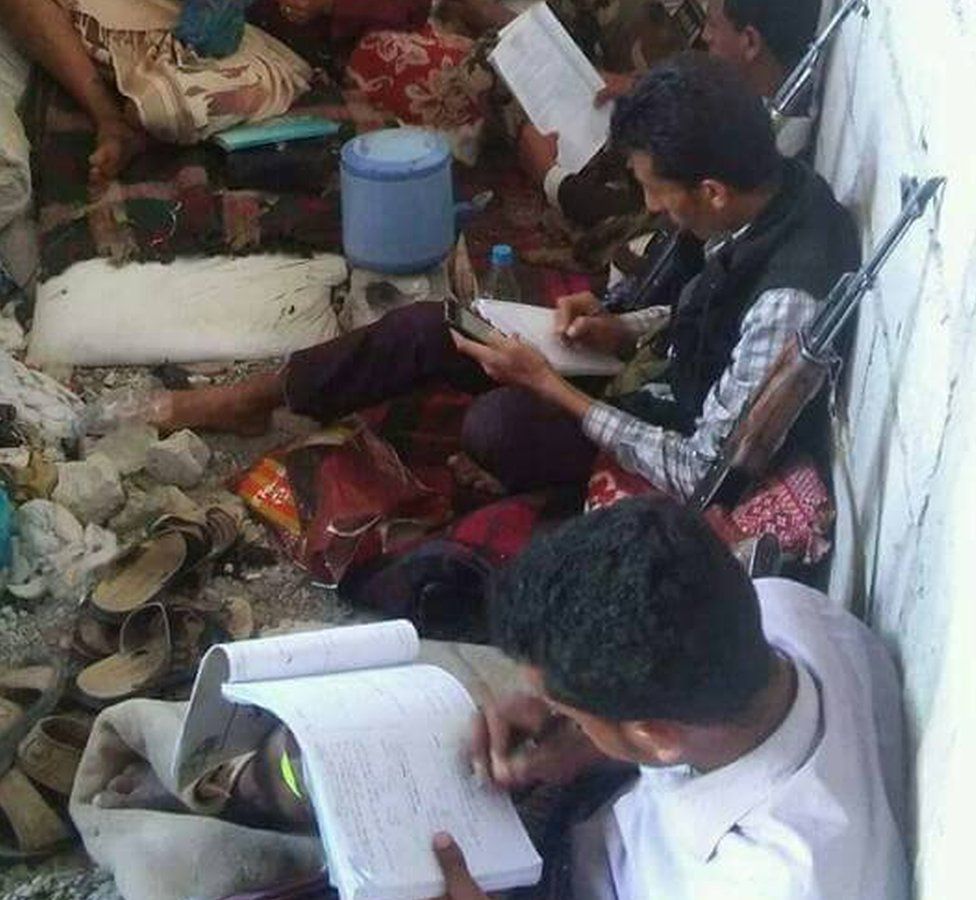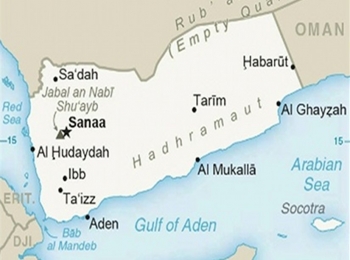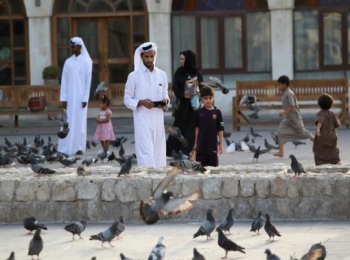- Yemen Humanitarian Periodic Monitoring Review, January - April 2017
- Yemenis and Qāt: A Game of Cat and Mouse
- The Queen of Sheba: The Virgin Mother and King Solomon’s Lover
- UNICEF airlifts lifesaving supplies to Yemen to combat cholera
- She May Be The Most Unstoppable Scientist In The World
- Yemeni Militias Loot 63 Ships Loaded With GCC Aid
- Notes to Yemen’s Government on Statement of Security Council
- Yemeni vice president condemns Houthi attacks on KSRelief shipments
- Mauritania Suspends ‘Suspicious’ Qatari Projects
- Passports announce extension of visitor's identity for the Yemeni brothers
BBC - Few in the Yemeni city of Taiz dared to hope for a peaceful Ramadan.
But after efforts by the United Nations to secure a truce there failed, the first few days of the Islamic holy month saw intense fighting between forces loyal to exiled President Abdrabbuh Mansour Hadi and the Houthi rebel movement.
Located in the highlands of south-western Yemen, Taiz was considered the country's cultural capital before it plunged into conflict more than two years ago.
With a relatively well-educated population of 300,000, Taiz was the cradle of the "Arab Spring" protests in 2011 that eventually forced long-time President Ali Abdullah Saleh to hand over power to Mr Hadi, who was then his deputy.
Today, the city's many professionals have been drawn into a struggle for survival, as Houthi fighters and allied security units loyal to Mr Saleh besiege their homes.
"I remember feeling I was very far from the path I had imagined for myself," he says.
The 28-year-old began his academic career as a postgraduate teaching assistant at the University of Taiz's applied sciences faculty and had plans to study for a PhD.
The closest he had ever come to a weapon until two years ago was wearing the traditional jambia dagger around his waist.
But as fighting in the city intensified and the university was forced to close, he felt his only choice was to join a local militia loyal to Mr Hadi known as the Popular Resistance.
The Popular Resistance was formed by residents within weeks of the arrival of Houthi and pro-Saleh forces in late March 2015, after they had taken control of the capital Sanaa.
The militiamen drove the rebels out of most of Taiz over the next few months with the help of a Saudi-led multinational coalition backing Mr Hadi.
But they were unable to stop the rebels from blocking roads into the city and preventing deliveries of basic supplies.
Despite two years of virtually uninterrupted fighting and bombardment that has devastated Taiz, neither side has been able to break the deadlock.
The medical humanitarian organisation, Médecins Sans Frontières, said in January that it had helped treat 10,700 people for war injuries in the city since 2015, while the UN reported in March that more than 2,000 people had been killed in Taiz and its surrounding province.
Omar al-Humairi has not worked since the siege began.
The 32-year-old was a practising lawyer, but his career was put on hold when the local courts closed.
He gave little thought to the future when he first joined the Popular Resistance.
"I didn't imagine that after six months, after two years there would still be war," he says.
Omar has also put off plans to settle down for as long as the conflict lasts.
"I don't want to get married when I'm fighting this battle and there's no guarantee that I'll live."
From the other side of the frontline, senior Houthi fighter Ahmed Amin al-Musawa says the decision of Taiz's residents to take up arms is "the best thing we have achieved in the war".
"Taiz was peace-loving and civilised and now everyone is prepared to fight for decades," he adds.
"Whether or not we have security in Taiz, whether or not we have an army, the people of Taiz will be able to protect their homes and what is happening now will not happen."
"I expect that in the future, they will fight them and drive them out of Taiz. And if that happens, you can be sure that we will be in agreement with t." city.
It is true that the people of Taiz didn't use to use weapons - they used the pen against oppression. But the militias attacking them have forced them to defend themselves," he explains. "This is not a positive thing but a necessity."
He does not believe that the fighting will help the city's people to protect themselves in the future, especially with the recent incorporation of the Popular Resistance into the army.
"Taiz is now building a national army that is capable of defending Taiz, its people and its property. It is capable of defending Yemen in general," he says.
Since the University of Taiz reopened late last year, Mufeed's waking hours have been spent between the barricades and lecture theatres, like many of the students who fight alongside him.
"There isn't a single day when they don't bring their pens, notes and textbooks with them to the frontline," he says.
On some days, he adds, they take turns to study in four-hour shifts while others keep look-out.
Mufeed is not ready to give up the battle for now, but does not see his future as a soldier.
"Once the siege on Taiz is lifted, that's it, I'll return to the university full time."
Mufeed celebrated his engagement in January, having postponed his plans to marry and start a family when the conflict erupted.
He says returning to work at the university has helped him gain a semblance of his former life.
"I took this step thinking that, God willing, the best is yet to come and that I can go back to the plans that I had before."










